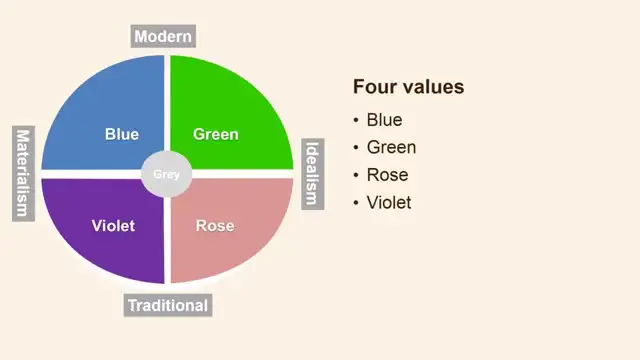Principles of Control in Management
Principle of Purpose Of Control
The control task is to ensure that plans succeed by detecting deviations from plans and furnishing a basis for taking action to correct potential or actual undesired deviations.
Principle of Future-directed Controls
Owing to the time lags in the total system of control, the more a control system is based on feed-forward rather than simple feedback of information, the more managers have the opportunity to perceive undesirable deviations from plans before they occur and to take action in time to prevent them.
Principle of Control Responsibility
The primary responsibility for the exercise of control rests in the manager charged with the performance of the particular plans involved. Since delegation of authority, assignment of tasks, and responsibility for specific objectives rest in individual managers, and it follows that each of these managers should exercise control over this work. A personal manager‘s responsibility cannot be waived or rescinded without changes in the organization structure.
Principle of Efficiency Of Controls
Control techniques and approaches are efficient if they detect and illuminate the nature and causes of deviations from plans with minimum costs or other unsought consequences.
Control techniques have a way of becoming costly, complicated, and burdensome. Managers may become so engrossed in control that they spend more than it is worth to detect a deviation. Detailed budget controls that hamstring subordinates, complicated mathematical controls that thwart innovation, and purchasing controls that delay deliveries and cost more than the item purchased are examples of inefficient controls.
Principle of Indirect Controls/Preventive Control
The higher the quality of managers in a managerial system, the less will be the need for direct controls. Most controls are mainly based on the fact that human beings make mistakes and often do not react to problems by adequately and promptly undertaking their correction. The more qualified managers are, the more likely they will perceive deviations from plans and take timely action to prevent them.
Principle of Reflection Of Plans
The more that plans are clear, complete, and integrated, and the more that controls are designed to reflect such plans, the more useful controls will serve managers’ needs. A system of controls can’t be devised without plans since the task of control is to ensure that plans work out as intended.
There can be no doubt that the more precise, complete, more precise grated these plans are, and the more control techniques are designed to follow these plans’ progress, the more effective the controls will be.
Principle of Organizational Suitability
The more that an organization structure is clear, complete, and integrated, and the more that controls are designed to reflect the place in the organization structure where responsibility for action lies, the more the controls will facilitate correction of deviations from plans.
People implement plans. Deviation from plans must be the responsibility primarily of managers who are entrusted with the task of executing planning programs. Since it is the function of an organization structure to define a system of roles, it follows that controls must be designed to affect the position in which responsibility for a plan’s performance lies.
💥🎁 New Year & Easter Deals On Amazon !
Don't miss out on the best discounts and top-rated products available right now!
🛒 Shop Now and Save Big Today!*As an Amazon Associate, I earn from qualifying purchases.
Principle of Standards
Effective control requires objective, accurate, and suitable standards. There should be a simple, specific, and verifiable way to measure whether a planning program is being accomplished. Control is achieved through people.
Even the best manager cannot help being influenced by personal factors, and actual performance is sometimes camouflaged by a dull or sparkling personality or a subordinate’s ability to ―sell a deficient performance. Acceptable performance standards, objectively applied, will more likely be accepted by deputies as fair and reasonable.
Principle of Critical Point Control
Effective control requires special attention to those factors critical to evaluating performance against plans.
It would ordinarily be wasteful and unnecessary for managers to follow every detail of plan execution. What they must know is that plans are being implemented. Therefore, they concentrate attention on salient factors of performance that will indicate any essential deviations from plans.
Perhaps all managers can ask themselves what things in their operations will best show them whether their response plans are being accomplished.
Principle of Flexibility Of Controls
If controls are to remain effective despite failure or unforeseen changes of plans, flexibility is required in their design. According to this principle, controls must not be so inflexibly tied in with a plan to be useless if the entire plan fails or is suddenly changed. Note that this principle applies to failures of plans, not failures of people operating under plans.
The Exception Principle
The more that managers concentrate control efforts on significant exceptions, the more efficient will be the results of their control.
This principle holds that managers should concern themselves with significant deviations-the, especially good or especially bad situations. It is often confused with the focus of critical point control, and the two do have some kinship.
However, critical point control has to do with recognizing the points to be watched, while the exception principle has to do with managing the deviations’ size at these points.
Principle of Action
Control is justified only if indicated, or experienced deviations from plans are corrected through appropriate planning, organizing, staffing, and leading. There are instances in practice in which simple truth is forgotten. Control is a wasteful use of managerial and staff time unless it is followed by action. If deviations are found inexperienced or projected performance, the action is indicated, in the form of either redrawing plans or making additional plans to get back on course.
💥🎁 New Year & Easter Deals On Amazon !
Don't miss out on the best discounts and top-rated products available right now!
🛒 Shop Now and Save Big Today!*As an Amazon Associate, I earn from qualifying purchases.
The situation may call for reorganization. It may require replacing subordinates or training them to do the task desired. It may indicate that the fault is a lack of direction and leadership in getting an assistant to understand the plans or motivate him to accomplish them. In any case, the action is implied.


